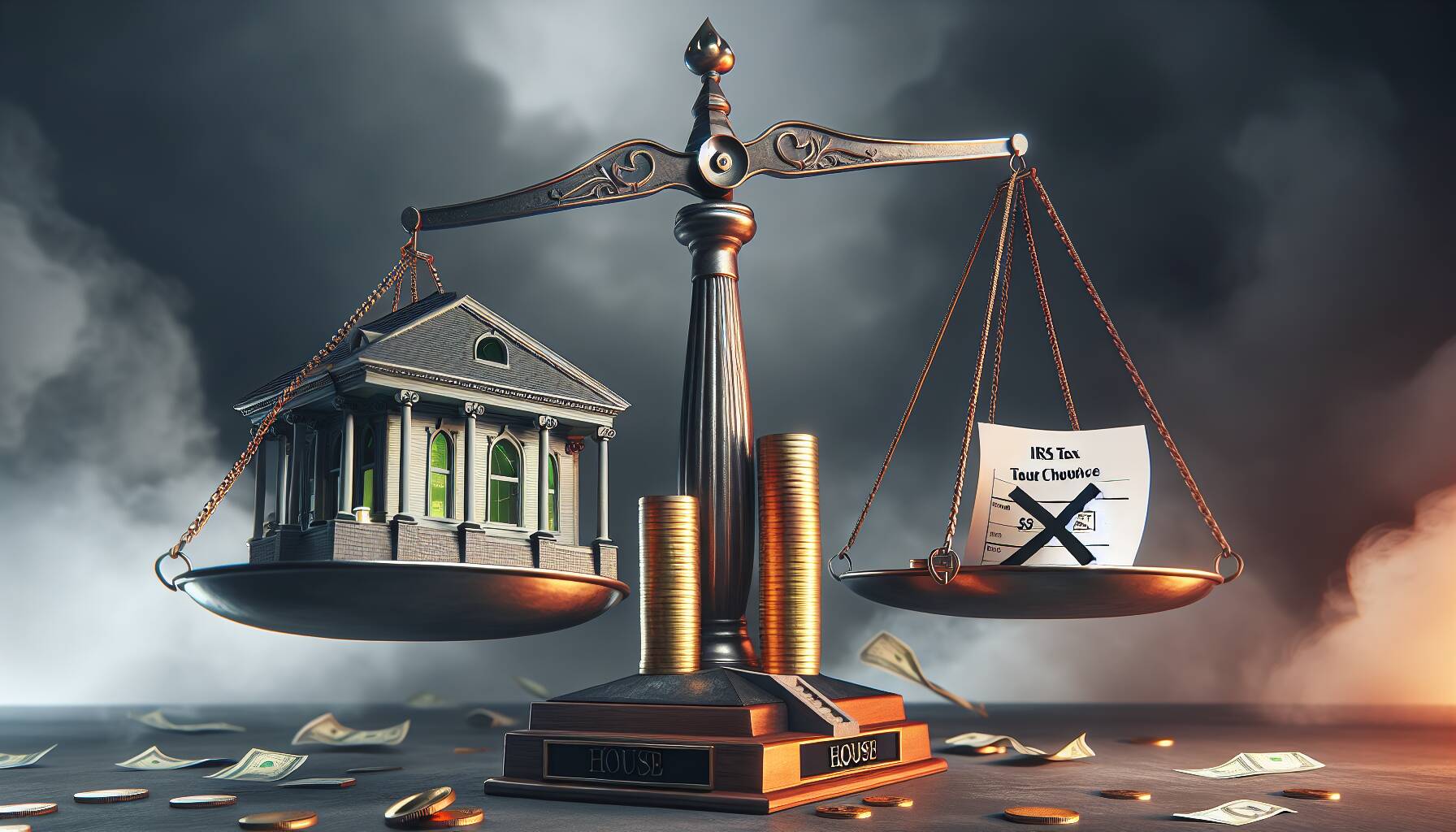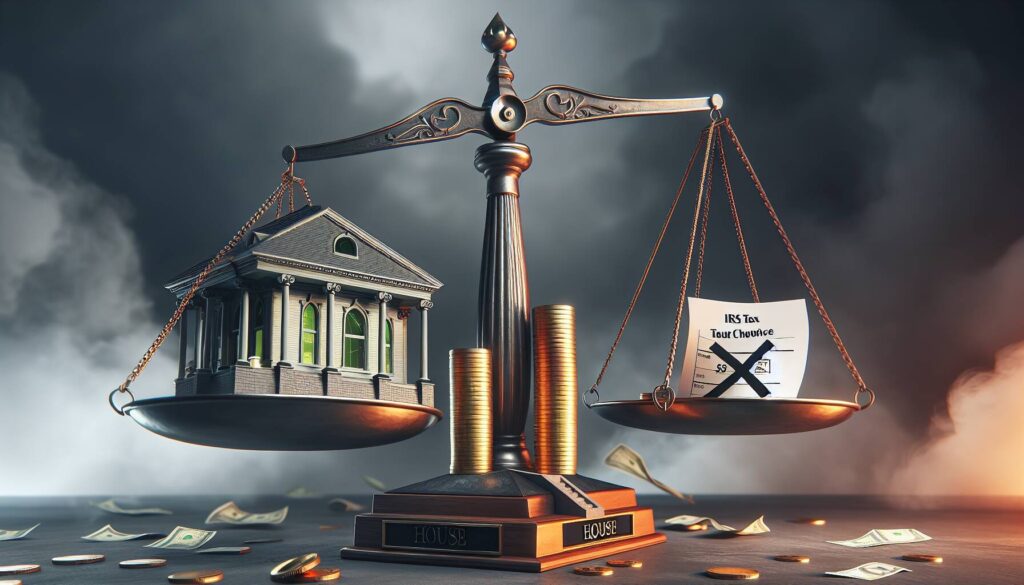The U.S. cryptocurrency landscape is buzzing with news as the House of Representatives takes significant steps to challenge a controversial tax rule imposed by the Internal Revenue Service (IRS) during the waning days of former President Joe Biden’s administration. In a recent vote, the House Ways and Means Committee approved a resolution aimed at reversing the IRS’s transaction-reporting policy that targets decentralized financial (DeFi) platforms, with a vote tally of 26-16. This resolution, part of the Congressional Review Act, requires a majority in both the House and Senate to fully repeal the rule before it could be signed into law.
In December 2022, the IRS approved a reporting system that the crypto community has vehemently opposed, fearing it would impose burdensome regulations on DeFi protocols, treating them like traditional brokers. Critics believe that this classification could extend to many entities that are not brokers at all, which could hinder innovation and operations within the industry. Last week, a coalition of major crypto stakeholders rallied their voices in a letter from the Blockchain Association, urging Congress to eliminate this contentious rule.
“We must pass this resolution to avoid this nightmare for American taxpayers and for the IRS,” remarked Republican Rep. Mike Carey of Ohio, highlighting the concern that the IRS may become overwhelmed by compliance demands.
On the other side of the aisle, Democrat Rep. Richard Neal from Massachusetts defended the IRS policy, asserting that it provides necessary regulatory oversight to ensure taxpayers accurately report their cryptocurrency earnings. “The bill before us today would repeal sensible and important Treasury regulations ensuring that taxpayers meet their tax filing obligations,” Neal said, emphasizing the need for accountability in the rapidly evolving crypto market.
If successful, the repeal of this IRS tax approach could potentially cut U.S. revenue by an estimated .9 billion over the next decade, igniting a fierce debate regarding the balance between fostering innovation in cryptocurrency markets and maintaining fiscal responsibility. With the matter now moving to the overall House for further consideration, the discussion surrounding the future of cryptocurrency regulation in the U.S. is sure to heat up.
“Not only is it unfair, but it’s unworkable,” stated Rep. Jason Smith, the Republican chairman of the committee from Missouri, criticizing the IRS for what he describes as a maneuver that sidesteps proper legislative processes.

Taxation Changes for DeFi Platforms: Key Points
The recent developments regarding the taxation of decentralized financial (DeFi) platforms could significantly impact both the crypto industry and taxpayers. Here are the most important aspects:
- House Resolution Passed: The House Ways and Means Committee advanced a resolution (26-16 vote) to repeal an IRS reporting policy on DeFi platforms under the Congressional Review Act.
- IRS Broker Rule Controversy: The IRS’s new rule forces DeFi protocols into a reporting regime designed for brokers, potentially misclassifying a wide range of entities.
- Impact on Crypto Industry: Nearly all major crypto entities have opposed this rule, citing it as detrimental to the functioning of DeFi protocols.
- Senate Support: Senator Ted Cruz is advocating for a Senate version of the CRA resolution to eliminate the IRS rule.
- Potential Revenue Loss: Repealing the IRS rule could lead to an estimated loss of .9 billion in U.S. revenue over the next decade.
- Counterarguments: Some Democrats argue that the repeal would undermine tax regulations, allowing taxpayers to evade reporting their cryptocurrency gains.
- Increased Burden on IRS: Republican representatives argue that the IRS would be overwhelmed by the complexities of enforcing the new rule.
“We must pass this resolution to avoid this nightmare for American taxpayers and for the IRS.” – Rep. Mike Carey
These developments may affect readers involved in cryptocurrency by altering the compliance landscape and financial reporting obligations associated with DeFi transactions. For ordinary taxpayers, any changes in tax regimes could influence their responsibilities and potential tax liabilities in the ever-evolving crypto economy.
Analysis of the House’s Move Against IRS Taxation of DeFi Platforms
The recent advancement by the U.S. House of Representatives to potentially dismantle the IRS’s regulation on decentralized financial (DeFi) platforms represents a pivotal moment in the ongoing debate over cryptocurrency taxation. This motion, which initiated from the House Ways and Means Committee’s 26-16 vote, reflects a growing pushback against stringent financial oversight amidst the ever-evolving landscape of digital currencies.
Competitive Advantages: This resolution could provide substantial relief to the DeFi sector, which has expressed significant concerns over the IRS’s approach that groups decentralized platforms with traditional brokerage entities. Should the resolution pass in both chambers of Congress, it would not only liberate various DeFi protocols from onerous reporting obligations but could also invigorate innovation within the sector by fostering a more favorable regulatory environment. The backing from notable figures like Senator Ted Cruz highlights bipartisan support that could further bolster confidence in the cryptocurrency market.
Disadvantages and Potential Implications: However, this move is not without its drawbacks. Opponents, like Rep. Richard Neal, argue that repealing the IRS’s guidelines could undermine tax compliance and lead to significant revenue loss, estimating roughly .9 billion over the next decade. This could trigger broader implications for national fiscal health, primarily affecting public services that rely on tax income. Furthermore, the DeFi community may face scrutiny for non-compliance in the event regulations are later reinstated or altered, leaving many in a precarious position.
The outcome of this legislative effort could sideline some future bonds of trust between DeFi developers and regulatory bodies. On one hand, it empowers innovators and smaller entities in the crypto space who have felt the pressure of traditional tax rules. On the other, established financial institutions might feel increasingly apprehensive, concerned that a lack of regulatory clarity could escalate compliance risk and invite further governmental intervention down the line.
In essence, while crypto proponents may rejoice at the thought of reduced regulatory burdens, the potential fallout of uprooting such IRS rules could unsettle the delicate balance between fostering innovation and ensuring fiscal responsibility. Stakeholders, from budding crypto entrepreneurs to large institutional investors, must navigate this evolving landscape with caution, weighing both opportunities for growth and the possible ramifications of diminished oversight.

















